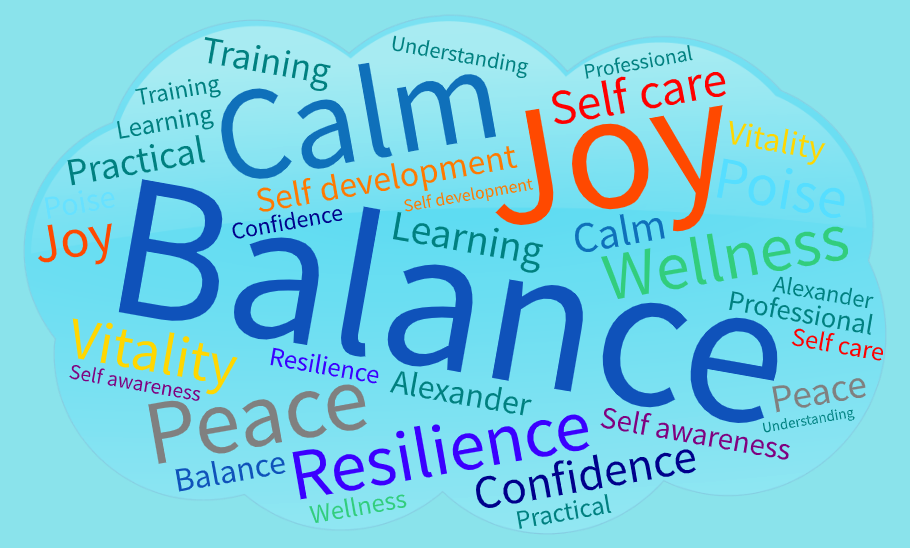The Edinburgh Alexander Training School (EATS) provides comprehensive training in the Alexander Technique. We offer Professional training to become a STAT-certified Alexander teacher, and we also offer various options for training for self development (e.g. a 12-week Foundation course and immersive Friday/Saturday sessions).
If you undertake the full course you will be trained in all aspects needed to become a competent, confident, creative, thoughtful and compassionate Alexander teacher, and you will gain a life-transforming professional qualification. Whichever training you choose, we want to provide the best Alexander experience possible – enabling you to deepen your Alexander understanding and skills to enrich your life and find greater resilience, poise and joy. You are likely to enjoy some profound mind-body (physical, mental and emotional) changes during the training as you begin to embody Alexander principles and skills.
You will benefit from working in a small group setting with a highly skilled training team and a low student-to-trainer ratio (usually around 3-to-1 and never more than than the STAT standard level of 5-to-1). At EATS our ethos is:
- Supportive: creating an encouraging and affirmative environment for learning through collaborative exploration
- Enquiring: discussion and critical thinking an essential core of the training, facilitated through the course structure
- Comprehensive: covering all aspects needed to produce a successful Alexander teacher additional to the core Alexander hands-on skills and understanding – including how to tailor your teaching to different individuals; setting up a business and marketing skills
- Fun: exploratory and playful approach to teaching and learning
- Empowering: within a solid teaching framework, students are encouraged to develop their own understanding, styles and approaches
- Transformative and life enhancing: ask any Alexander teacher about their training and they’ll tell you what a huge positive impact it has had on their life
- Collaborative: based on feminist principles of inclusivity, mutual respect and collective, as well as personal, responsibility
- Diverse and inclusive: EATS thrives on a diversity of individual perspectives and contributions to the collective learning space. We seek an inclusive approach, welcoming students and teachers from different backgrounds and life experiences – for example, in relation to race, class, gender identity, sexuality, neurodiversity, age, mental and physical health, pregnancy and carer role
- Wide ranging and rich: many different teaching styles and perspectives come from a diverse training team that includes senior visiting teachers from throughout the UK
- Outward looking: engaging with other disciplines where relevant, for example, neuroscience & pain science, myofascial integration, biomechanics, other mindful movement-based practices, and trauma therapies
- Principle and evidence based: teaching based on the fundamental principles of the Alexander Technique supported by the available research, as well as anatomy and physiology
- Openness and inquisitiveness: non-mainstream ideas and influences (Alexander related & otherwise) will be explored wherever this can contribute to understanding
- Rigorous: robust, standardised independent assessment method for certification. On an ongoing basis, students will be required to actively engage and commit to their own development (on a practical level this includes projects being completed and any missed time made up)
- Professional: In addition to ‘learning by osmosis’ from the professional culture of the course, there will be training around codes of conduct, CNHC, running a practice etc. Students are encouraged to think widely about what they can contribute during and after the training – to STAT and to the wider profession of Alexander teaching
- Continuous and ongoing: graduates are encouraged to continue to visit the school on a regular basis to gain experience as a teacher until they feel sufficiently established. A mentoring system provides each graduate with an experienced teacher who they can call on for ongoing advice and support.

